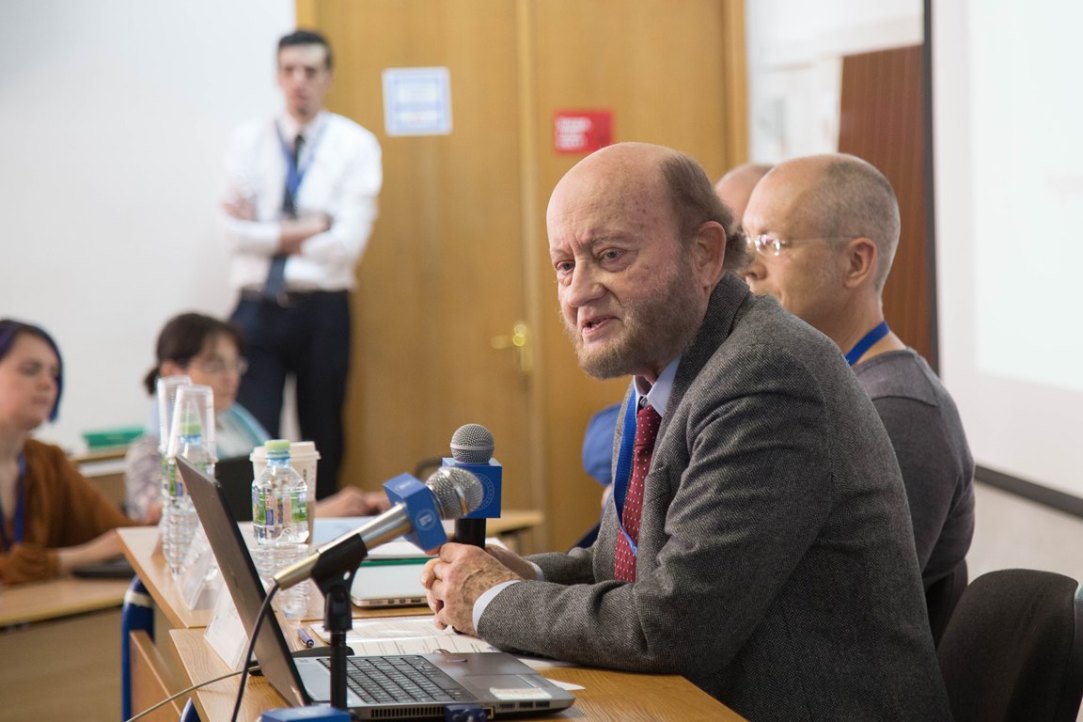.jpg)
Admissions for ‘Comparative Social Research’ Master’s Programme Now Open
The English-taught master's programme in Comparative Social Research studies sociology from a global perspective and is intended for those who are interested in understanding how people's actions affect society and what influences the decisions and self-identification of individuals and groups in different cultures, regions and circumstances. Students participate in interregional and cross-country quantitative and qualitative research, working on their own projects. The programme’s academic supervisor Ekaterina Mitrofanova told HSE News Service about the course’s features and admission process.

HSE University Reports New Findings on Links between Job Satisfaction and Life Satisfaction
Natalia Soboleva has examined the impact of various factors on the link between job satisfaction and life satisfaction. Using data from the European Values Study, she found the association between job satisfaction and life satisfaction to vary across sociodemographic characteristics. In particular, job satisfaction contributes more significantly to life satisfaction for men compared to women, while being married weakens the association between job satisfaction and life satisfaction. The paper is published in the International Journal of Sociology and Social Policy.
Authoritarianism as the Opposite Pole of Postmaterialism
On April 10, Ronald Inglehart, founder of the World Values Survey and the Laboratory for Comparative Social Research, delivered an honorary lecture at the LCSR’s 9th international seminar held as part of HSE’s XX April Academic Conference. The lecture addressed the roots of authoritarianism, its relationship to other widely investigated phenomena and its empirical linkage with contemporary politics.

VTB Starts Funding Comparative Social Research at HSE
This year VTB is launching the Endowment for Comparative Social Research at HSE. The endowment will make it possible to invest 10-20 million roubles in research each year. The exact amount will depend on trust management of the endowment assets, implemented by VTB Capital Investment Management.
Single People Get Less Happy as They Age
While being single or married does not usually make much difference in terms of life satisfaction for younger people, single individuals tend to feel less happy as they age, particularly at certain moments of their lives, and most single people experience a peak of unhappiness once they retire, according to Anna Shirokanova, Senior Research Fellow of the HSE Laboratory for Comparative Social Research in St. Petersburg.
Life of the Russian Regions is Hidden from the Government
About 40% of the Russian able-bodied population are employed in the informal sector of the economy. This is a competitive market economy. Subsistence production, distributed manufacturing, ‘garage production’, seasonal work and various cottage industries flourish in the Russian regions. The economies of many small cities feature strict specialization and developed cooperation, in the context of internal competition between families and clans. These are the findings of HSE professors Simon Kordonsky and Yury Pliusnin in their study ‘Social Structure of the Russian Provinces’.
Sexual Revolution Not Universal in Post-Soviet Countries
Attitudes towards family and sexual norms vary widely across the former Soviet Union republics. At the country level, economic development and the level of religiosity both help to determine attitudes, while age plays an important role at the individual level. Middle-aged people tend to be more liberal than those who are older or younger, according to a study conducted by Sofia Lopatina, Veronica Kostenko, and Eduard Ponarin of the HSE's Laboratory for Comparative Social Research (LCSR) in St. Petersburg.
Belief in Life after Death Affects Suicide Rates
Followers of older, more established religions are less likely to commit suicide than adepts of newer faiths. Factors influencing the risk of suicide include a feeling of isolation from the majority and a belief in life after death, according to a study by Eduard Ponarin, Director of the HSE's Laboratory for Comparative Social Research (LCSR) in St. Petersburg, and Vassily Usenko, M.D., Ph.D., from Dnipropetrovsk.
International Conference on Economics and Culture
On November 10-15, the IV International Conference ‘Cultural and Economic Changes in a Comparative Perspective’ took place in St. Petersburg. Organized by HSE’s Laboratory for Comparative Social Research, the conference has traditionally brought together Russian and foreign scholars working on issues of values, trust, social capital, corruption and inequality in a changing world, as well as the role of religion in political activity and other social issues in Russia and other countries.

New Master’s Programme in Sociology for Aspiring Young Researchers
A new English-taught master’s programme at the HSE, ‘International Master in Comparative Social Research’, will allow students to acquire the knowledge and skills that are in demand on the global market for social research. Applications are due by May 31, 2014.

